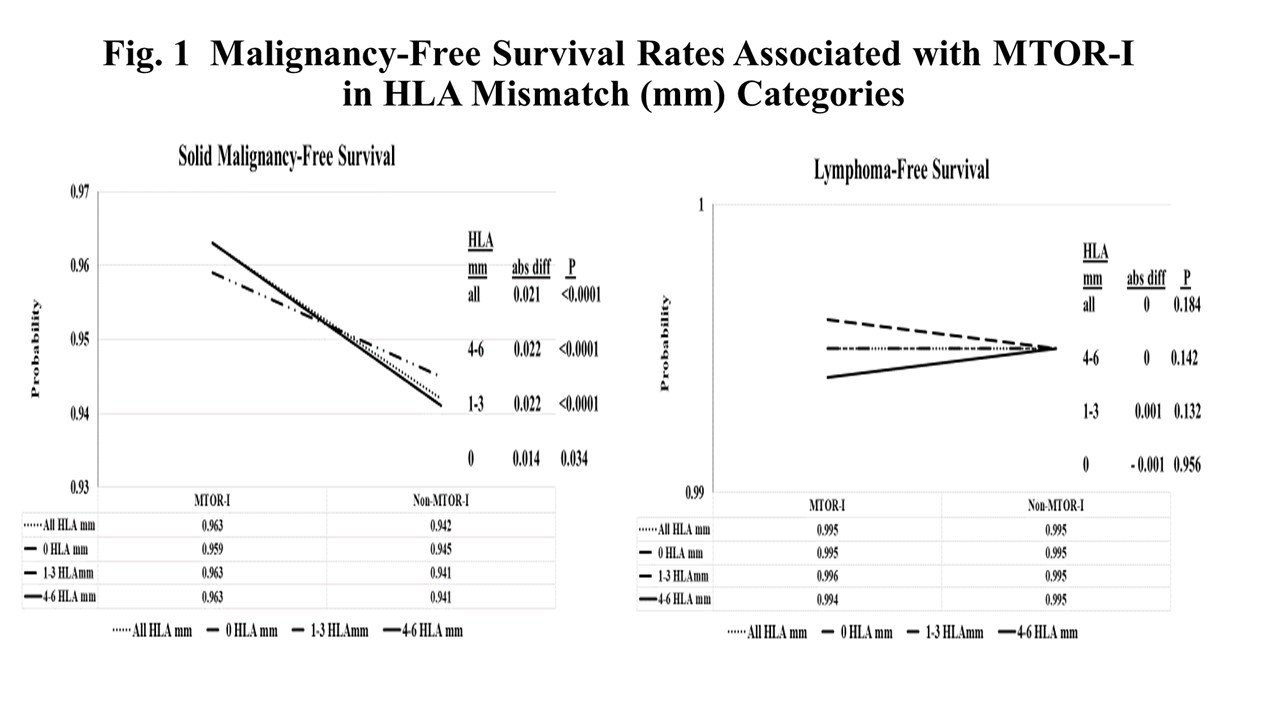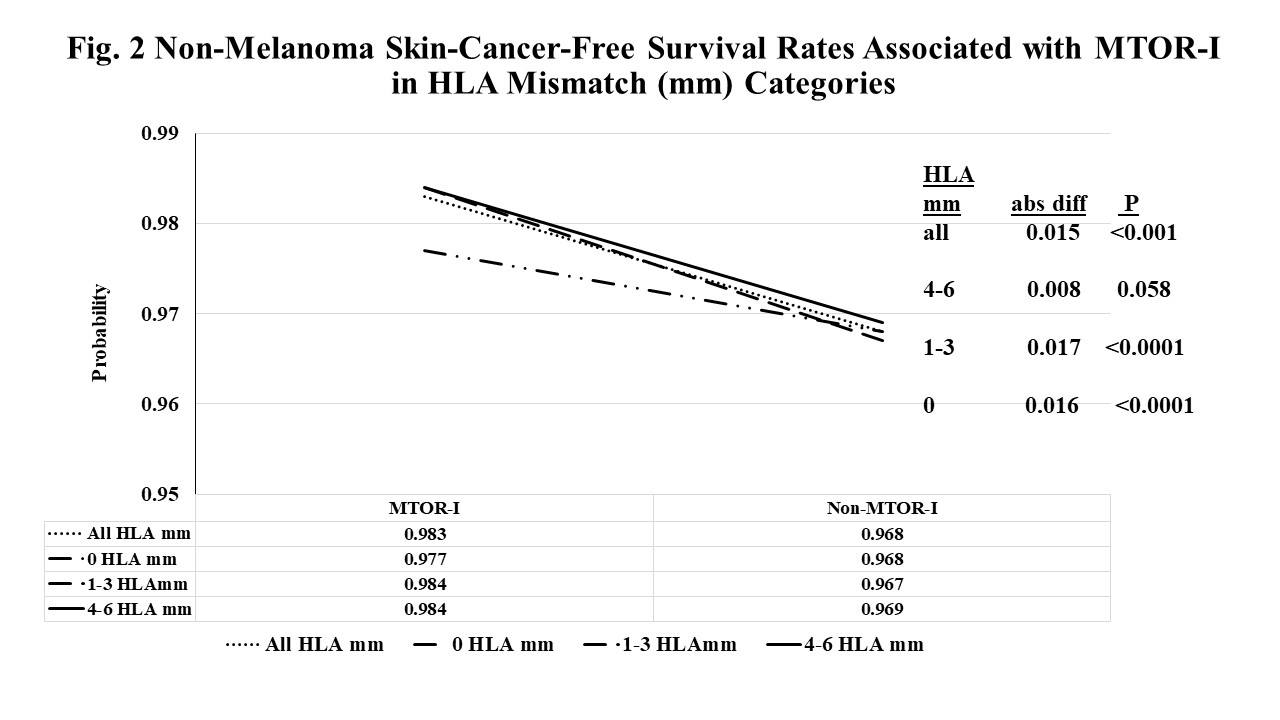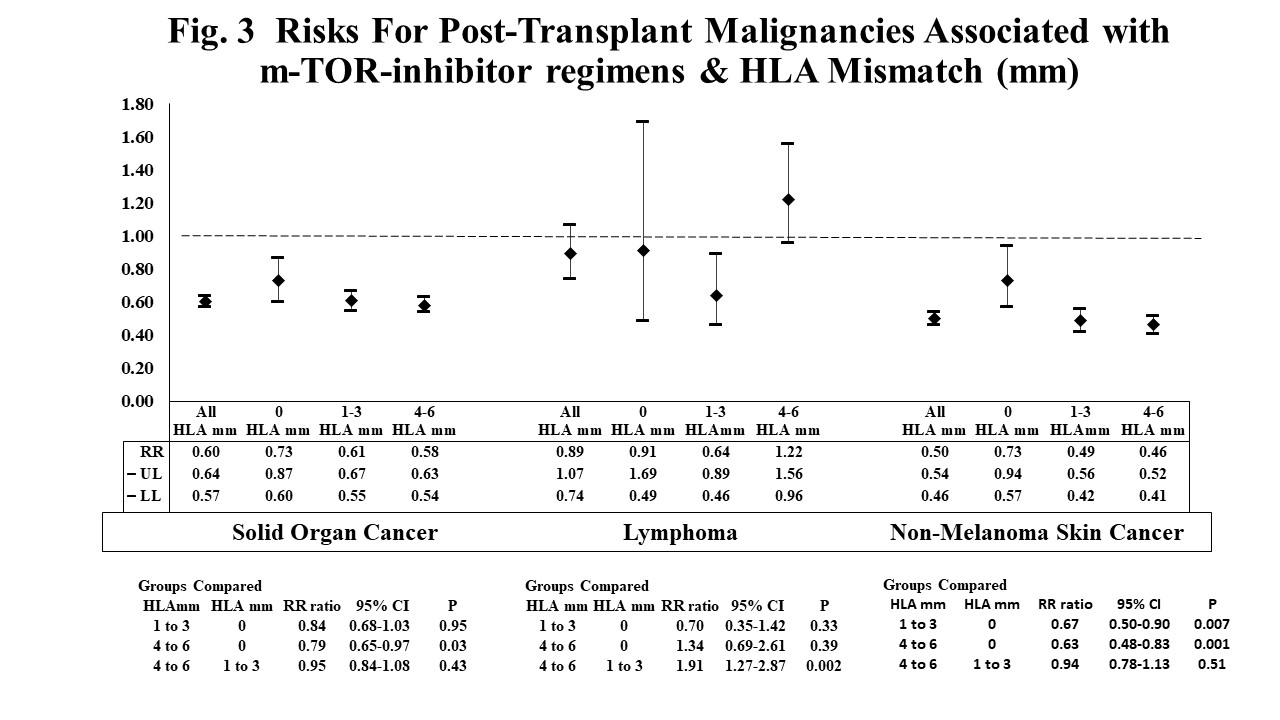MTOR-Inhibitor Regimens and Malignancy after Kidney Transplantation: Can the Risk Be Modified by Considering Human Leukocyte Antigen (HLA) Mismatch in Immunosuppression Selection?
1University of Florida, Gainesville, FL, 2Division of Nephrology, Hypertension, & Renal Transplantation, University of Florida, Gainesville, FL, 3Department of Pharmacy Practice, University of Rhode Island, Kingston, RI
Meeting: 2020 American Transplant Congress
Abstract number: 498
Keywords: Calcineurin, Malignancy, Post-transplant malignancy, Rapamycin
Session Information
Session Time: 3:15pm-4:45pm
 Presentation Time: 3:15pm-3:27pm
Presentation Time: 3:15pm-3:27pm
Location: Virtual
*Purpose: We investigated the outcomes of mammalian target of rapamycin inhibitor (MTORI) regimens in adult kidney transplant (KT) recipients (KTRs) in categories of donor/recipient pre-transplant HLA mismatch (mm).
*Methods: Using SRTR data, we compared the 5-yr. maximum follow-up risks of solid-organ malignancy, lymphoma, and non-melanoma skin cancer (NMSC) associated with 1st transplant-yr. immunosuppression with MTORI [sirolimus or everolimus combined with either a calcineurin inhibitor (CNI), mycophenolate, or azathioprine) and non-MTORI (any CNI, mycophenolate, or azathioprine combination) regimens in adult-KTRs in the 0, 1-3, and 4-6 HLA mm groups.
*Results: Probability of lymphoma-free survival did not differ between KTRs on MTOR-I and non-MTOR-I regimens regardless of their HLA mm category (Fig 1). Solid organ malignancy (SOM)-free and NMSC-free 5-year survival probabilities were higher with m-TOR-I vs. non-MTOR-I regimens in virtually all HLA mm categories (Figs. 1 and 2, respectively). The relative risk (RR) for lymphoma was lower with MTOR-I vs. non-MTOR-I regimens only in one (the 1-3) HLA mm category (Fig. 3). However, the RRs for SOM and NMSC were lower with MTOR-I regimens in all HLA mm categories. Furthermore, we observed more reductions of risks associated with MTOR-I regimens from SOM in KTRs with 4-6 (vs. 0) HLA mm and NMSC in KTRs with 1-3 and 4-6 (vs. 0) HLA mm (Fig. 3).
*Conclusions: The relationship between MTOR-I regimen and HLA mm should be re-examined with the aim of reducing post-KT malignancy events through risk-based immunosuppression selection.
To cite this abstract in AMA style:
Santos A, Chen C, Alquadan K, Leghrouz MA, Wen X. MTOR-Inhibitor Regimens and Malignancy after Kidney Transplantation: Can the Risk Be Modified by Considering Human Leukocyte Antigen (HLA) Mismatch in Immunosuppression Selection? [abstract]. Am J Transplant. 2020; 20 (suppl 3). https://atcmeetingabstracts.com/abstract/mtor-inhibitor-regimens-and-malignancy-after-kidney-transplantation-can-the-risk-be-modified-by-considering-human-leukocyte-antigen-hla-mismatch-in-immunosuppression-selection/. Accessed February 22, 2026.« Back to 2020 American Transplant Congress



